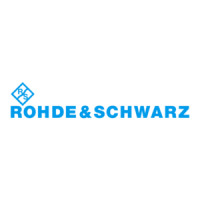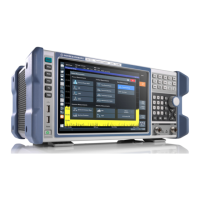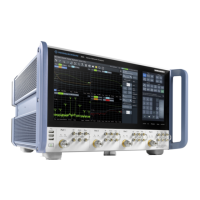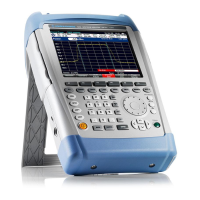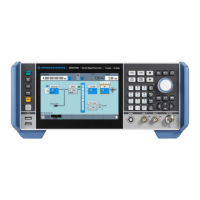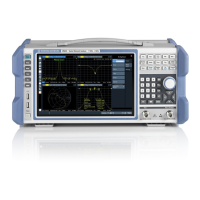R&S FSL Noise Measurements
1300.2519.12 2.17 E-11
Noise Measurements
Noise measurements play an important role in spectrum analysis. Noise e.g. affects the sensitivity of
radio communication systems and their components.
Noise power is specified either as the total power in the transmission channel or as the power referred
to a bandwidth of 1 Hz. The sources of noise are, for example, amplifier noise or noise generated by
oscillators used for the frequency conversion of useful signals in receivers or transmitters. The noise at
the output of an amplifier is determined by its noise figure and gain.
The noise of an oscillator is determined by phase noise near the oscillator frequency and by thermal
noise of the active elements far from the oscillator frequency. Phase noise can mask weak signals near
the oscillator frequency and make them impossible to detect.
Measuring Noise Power Density
To measure noise power referred to a bandwidth of 1 Hz at a certain frequency, the R&S FSL provides
marker function. This marker function calculates the noise power density from the measured marker
level.
Measurement example – Measuring the intrinsic noise power density of the
R&S FSL at 1 GHz and calculating the R&S FSL's noise figure
Test setup:
Connect no signal to the RF input; terminate RF input with 50 P.
Procedure:
1. Set the R&S FSL to its default state.
Press the PRESET key.
The R&S FSL is in its default state.
2. Set the center frequency to 1.234 GHz and the span to 1 MHz.
Press the FREQ key and enter 1.234 GHz.
Press the SPAN key and enter 1 MHz.
3. Switch on the marker and set the marker frequency to 1.234 GHz.
Press the MKR key and enter 1.234 GHz.
4. Switch on the noise marker function.
Switch on the Noise Meas softkey.
The R&S FSL displays the noise power at 1 GHz in dBm (1 Hz).
Note: Since noise is random, a sufficiently long measurement time has to be selected to obtain stable
measurement results. This can be achieved by averaging the trace or by selecting a very small
video bandwidth relative to the resolution bandwidth.
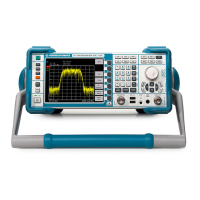
